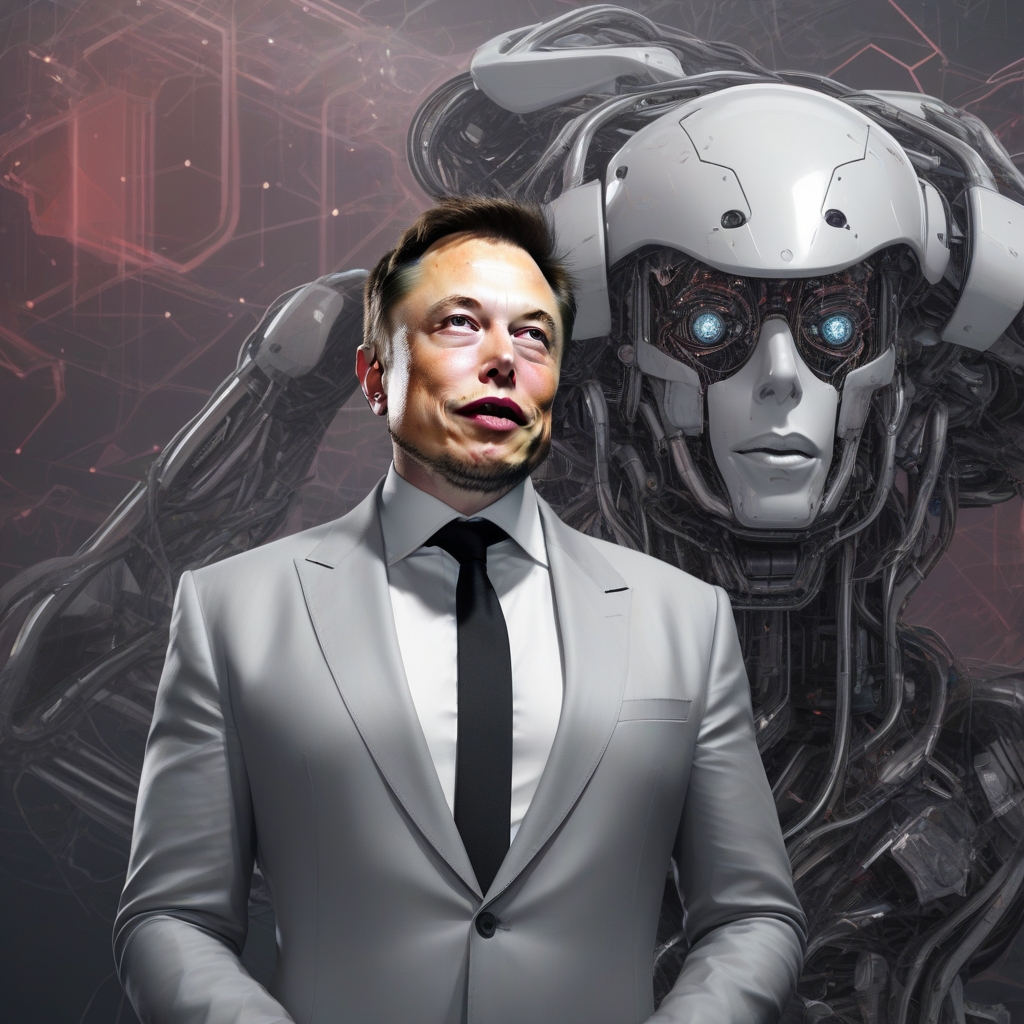Introduction
Elon Musk, the visionary founder of Tesla and SpaceX, has never been one to shy away from expressing his viewpoints, especially when he perceives a potential ethical or strategic misalignment. Recently, Musk has once again turned his critical eye towards OpenAI, the artificial intelligence research laboratory he co-founded, over its decision to shift towards a for-profit model. This is not the first time the billionaire has voiced his concerns, but his latest comments have reignited debates surrounding the ethical implications of AI research and its commercial applications.
Background: The Birth and Evolution of OpenAI
Founded in December 2015, OpenAI was established with the ambitious goal of ensuring that artificial intelligence benefits all of humanity. Initially set up as a non-profit organization, its mission was to conduct cutting-edge AI research and freely share the results to foster an open, collaborative scientific community.
However, in March 2019, OpenAI announced a significant transformation. The organization decided to become a “capped-profit” company, formally known as OpenAI LP. This restructuring aimed to balance the need to attract investment with the ethical responsibility of its research. While this allowed OpenAI to secure substantial funding from entities like Microsoft, it also introduced a profit motive that was ostensibly capped to ensure long-term adherence to its founding principles.
Elon Musk’s Concerns
In recent statements, Elon Musk has reiterated his displeasure with OpenAI’s pivot towards a for-profit model. He has some compelling reasons for his apprehension:
- Ethical Diversion: Musk believes that the primary mission of OpenAI to promote ethical AI research may be compromised by the financial incentives inherent in a for-profit model.
- Transparency Risks: He argues that commercial interests could limit the openness and transparency that were fundamental to OpenAI’s original ethos.
- Conflict of Interests: Musk is concerned that the introduction of profit motives might lead to conflicts of interest, particularly when it comes to prioritizing shareholder returns over societal good.
Musk’s History with OpenAI
Elon Musk’s relationship with OpenAI is a nuanced one. As a co-founder and early advocate, he has always been vocal about the potential dangers and ethical considerations tied to artificial intelligence. In 2018, Musk stepped down from OpenAI’s board, citing potential conflicts of interest with his AI projects at Tesla, particularly self-driving technology. Despite his resignation, Musk has remained a significant donor and stakeholder in the AI discourse, continually emphasizing the importance of ensuring that AI development remains safe and beneficial for all.
The Debate: For-Profit vs Non-Profit Models in AI
The shift from a non-profit to a capped-profit model is a hotly debated topic within the AI community. Each model has its advantages and disadvantages.
- Advantages of Non-Profit Models:
- Focus on Ethical Outcomes: Non-profit models are typically free from commercial pressures, allowing for a more ethical focus.
- Transparency and Open Collaboration: The absence of profit motives generally ensures that research outputs are freely shared and collaboratively developed.
- Disadvantages of Non-Profit Models:
- Funding Limitations: Non-profits often struggle to secure sufficient funding, potentially slowing down innovation.
- Resource Constraints: The lack of profit may limit their ability to attract top talent and cutting-edge resources.
- Advantages of For-Profit Models:
- Better Funding and Resources: The ability to attract significant investment allows for rapid advancements and access to state-of-the-art technology.
- Scalability: For-profit entities can scale operations and impact more effectively due to better financial support.
- Disadvantages of For-Profit Models:
- Ethical Concerns: The profit motive can potentially overshadow ethical considerations, leading to a focus on revenue over the common good.
- Reduced Transparency: Proprietary research and competitive business practices may limit information sharing and collaborative efforts.
Implications of Musk’s Critique
Elon Musk’s vocal critique is not just an isolated grievance but highlights broader concerns within the AI community and the tech industry. Some of these implications include:
- Reassessment of Ethical Guidelines: Musk’s remarks may prompt other AI organizations to reassess their ethical guidelines and operational models to ensure a balanced approach.
- Public Awareness and Scrutiny: His comments elevate public awareness and scrutiny of AI research practices, potentially influencing policy and regulation.
- Investor and Stakeholder Impact: Criticism from a high-profile figure like Musk could impact investor confidence and stakeholder alignment with OpenAI’s new direction.
OpenAI’s Defense
In response to such critiques, OpenAI has articulated several defenses for its shift in strategy:
- Need for Capital: The organization argues that substantial funding is necessary to stay at the forefront of AI research and achieve its mission.
- Ethical Safeguards: OpenAI maintains that its capped-profit structure includes built-in safeguards to ensure ethical alignment remains a priority.
- Operational Flexibility: The new model purportedly allows for greater operational flexibility, enabling better responsiveness to technological advancements and societal needs.
Conclusion
Elon Musk’s recent criticisms of OpenAI’s shift to a for-profit model underscore the ongoing tension between ethical AI research and the practical necessities of funding and scaling such endeavors. While OpenAI defends its decision as a pragmatic approach to sustaining its mission, Musk’s concerns highlight essential questions about the future trajectory of AI development. This debate is far from over, but it serves as a crucial reminder of the importance of balancing ethical considerations with the imperatives of innovation and progress. The discourse sparked by Musk’s comments will likely continue to shape the landscape of AI research and its applications for years to come.

Leave a Reply